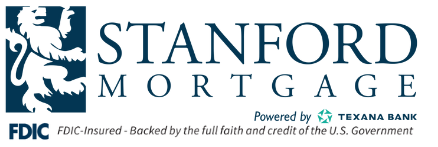
If you’re looking to buy your dream home, but you don’t have enough funds, you aren’t alone. One of the biggest hurdles that most home buyers face is saving up for a sizable down payment, let alone the whole payment on a home. Luckily, there are various loan options you may be able to utilize to kickstart and propel you towards getting the home you so much desire.
However, not every loan option is right for you, especially if you are financially strained with debts or a low credit score. That’s when it may be a good idea to consider a FHA loans, especially if you’re a first-time homebuyer.
This article explores FHA home loans in detail: what they are, their requirements, and whether an FHA home loan might be right for you.
What is an FHA Loan?
Did you know that the U.S. Federal Housing Administration (FHA) is the world’s largest residential mortgage insurer? FHA loans are insured by the FHA andenable lenders, like banks, credit unions, and private mortgage companies. to fund home purchase loans with low down payment requirements. FHA home loan borrowers are responsible for paying the premiums associated with that insurance. With an FHA loan, qualified buyers can purchase new homes with as little as a 3.5% down payment.
An FHA home loan allows qualified applicants to buy a home with more flexible and less stringent financial requirements (debt status, credit score, down payment) as compared to conventional loans
FHA Home Loans Requirements
Both first-time homebuyers and experienced homebuyers may be able to qualify for a FHA loan and take advantage of a low down payment option with easier credit qualifying than conventional loans. However, there are several requirements FHA loan applicants must meet. These include:
- The home must be appraised by an FHA-approved appraiser and meet certain guidelines.
- The property must be a primary or principal residence, not a second home or an investment.
- The borrower must occupy the property as the borrower’s primary residence within 60 days of closing the loan.
- A mandatory inspection of the home must occur to ensure it meets all the minimum property standards and regulations.
Here are more specific FHA loan requirements:
FHA Home Loan Down Payments
The minimum FHA loan down payment a borrower is supposed to make is directly linked to one’s credit score. The higher the credit score, the lower the down payment.
An FHA loan requires a minimum down payment of 3.5% of the purchase price for borrowers with a credit of 580 or higher or a 10% down payment for a credit score that’s between 500 and 579. But, it’s worth noting that all the down payment funds must come from FHA-approved sources such as personal savings, gift letters, or investments.
Mortgage Insurance
Individuals are required to pay Mortgage Insurance Premium (MIP) on their FHA loan to insure FHA lenders against losses if they default their loan(s). The MIP is paid for the life of the FHA loan or 11 years if you made a 10% down payment.
Some lenders may require borrowers to pay an upfront mortgage premium, which is normally 1.75% of your loan. FHA borrowers are also required to pay a 0-45% – 1.05% annual mortgage insurance premium of the loan, depending on the length of the mortgage or loan.
FHA Home Loan Limits
How much FHA loan a borrower can get depends on the county of your potential home and location (high or low cost). The U.S. Department of Housing and Urban Development sets the floor and ceiling for one-unit properties in Calendar Year (CY) 2022 are $420,680 and $970,800, respectively. You can find more about your FHA loan limits here or reach out to a HUD-approved housing counselor.
FHA Home Loans Credit Score
Credit score depends on several things, including credit type, the “age” of the credit, credit utilization, and how well one services their bills. A higher credit score gives a debt-to-income ratio (DTI), meaning a borrower can qualify for a higher FHA loan limit.
The circumstances for DTI and monthly mortgage payments vary. For instance, the FHA stipulates that one’s DTI shouldn’t be more than 43% and monthly payments 31% of the monthly gross income in some circumstances.
FHA Income Requirements
While the FHA doesn’t put many salary requirements to qualify for a loan, a borrower must prove that they have a steady employment history. Lenders might ask for W-2s, tax returns, and bank statements for verification purposes.
The Bottom Line on How FHA Home Loans Work
FHA home loans are:
- Government-insured loans that allow borrowers to purchase a home with as low as a 3.5% down payment. Borrower must pay the premiums for this insurance, which is meant to protect the lender.
- Borrowers can also pay their FHA loans without risking pre-payment penalties.
Getting a loan to purchase a home can be frustrating, especially if you don’t know the right procedures to follow. But there’s no need to worry. We are here to help you out. Please don’t hesitate to contact us today to get started.
Get started today!
Fill out the questionnaire on this page to start a discussion about your mortgage needs today!


